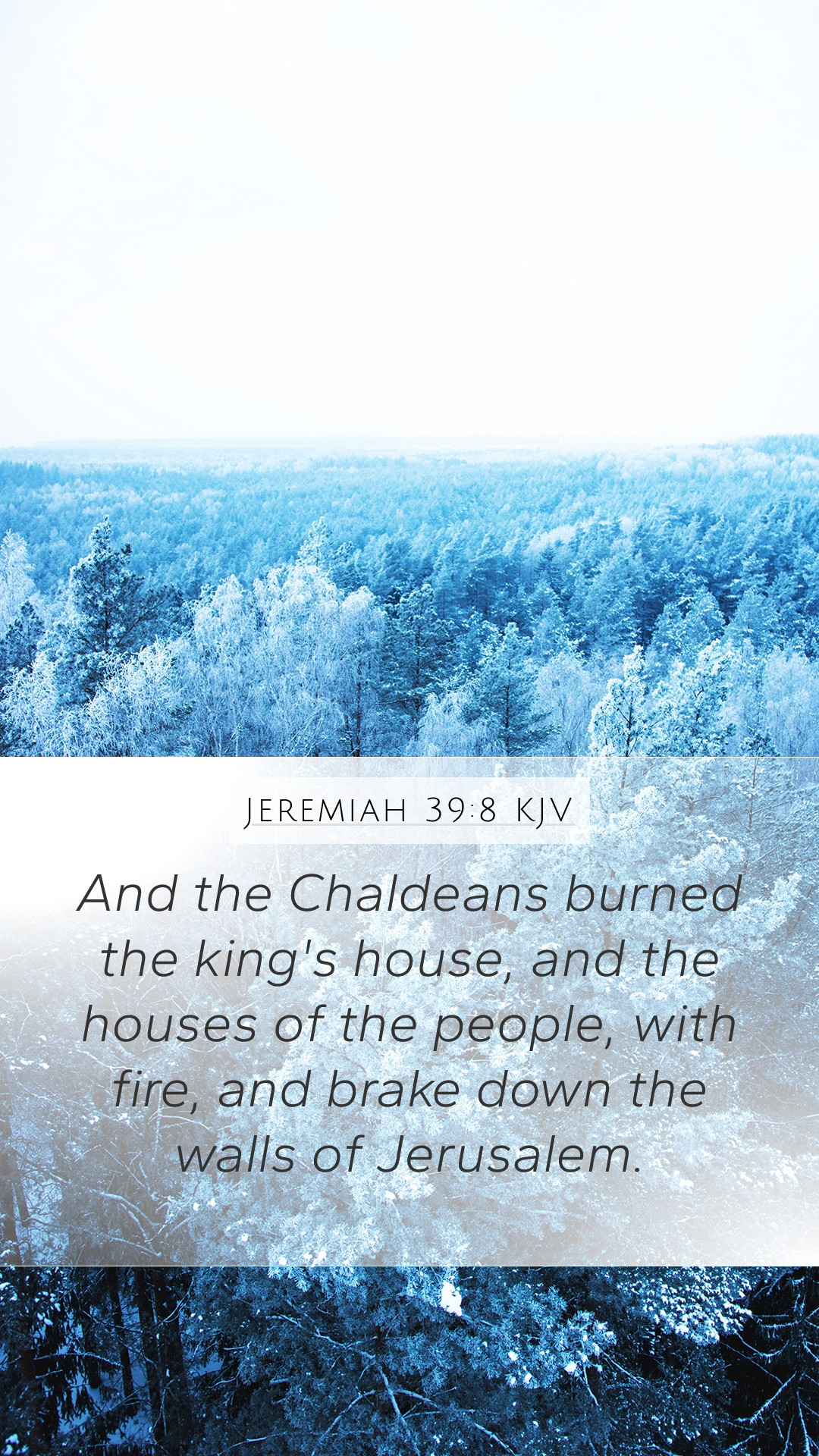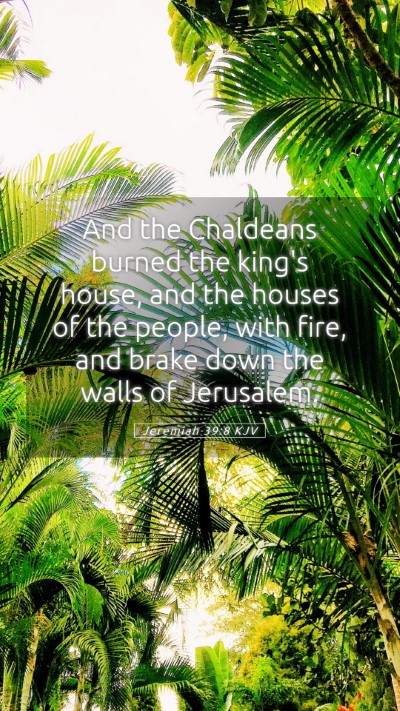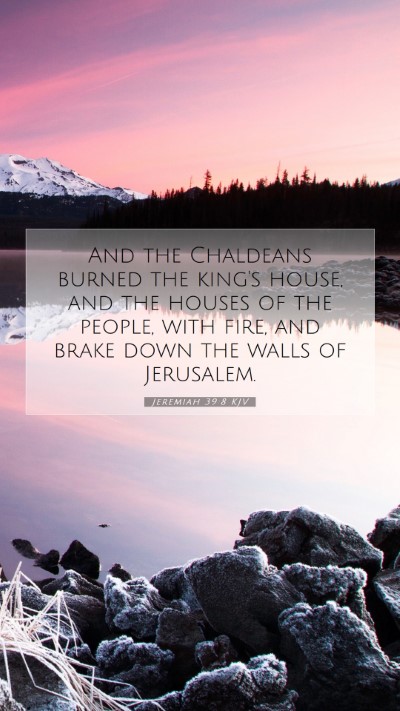Understanding Jeremiah 39:8
In this passage, Jeremiah 39:8 conveys a significant moment in the history of Jerusalem and serves as a reflection of God’s judgment upon His people. This analysis will encompass various insights derived from public domain commentaries, enriching the bible verse understanding and providing clarity on its meanings.
Text of the Verse
Jeremiah 39:8: "And the Chaldeans burned the king’s house, and the houses of the people, with fire, and broke down the walls of Jerusalem."
Contextual Overview
Jeremiah, known as the weeping prophet, delivers messages concerning the impending doom of Jerusalem. This verse comes after the city has fallen to the Chaldeans (Babylonians). The destruction represents the culmination of a series of warnings and prophecies regarding sin and rebellion against God.
Historical Background
The assault on Jerusalem culminated in 586 BC, a pivotal event in Jewish history. The Chaldeans, under King Nebuchadnezzar, executed a siege that resulted in the temple's destruction, exacerbating the suffering of the Israelite people. This verse emphasizes the consequences of disobedience detailed in earlier prophecies.
Commentary Insights
-
Matthew Henry:
Henry emphasizes the severity of God’s judgment as He allows the city to be consumed by fire. He interprets this as a direct consequence of the nation’s turning away from God—aligning divine wrath with the act of burning the houses as both a physical and spiritual annihilation.
-
Albert Barnes:
Barnes observes the literal devastation caused by the Chaldeans, pointing out the systematic approach to destruction they employed. He relates the burning of the king’s house to the failure of leadership and highlights the symbolic dismantling of Jerusalem’s identity.
-
Adam Clarke:
Clarke discusses the psychological and social ramifications of such destruction, particularly the ruin of the homes and walls which were not only physical structures but also represented the community's stability and safety. He interprets that the broken walls serve as a metaphor for broken covenants with God.
Spiritual Significance
This verse serves as a sobering reminder of the consequences of sin and disobedience towards God. The destruction illustrates that turning away from divine commandments leads to the loss of blessings and protection. It offers poignant reflections for bible study groups, as the actions of the Israelites can resonate with contemporary themes of faithfulness and repentance.
Life Application
Understanding the significance of this passage plays a pivotal role in applying Bible verses to daily life. Believers are urged to reflect on their own lives and communities, considering the impact of turning away from God's guidelines. This could serve as a catalyst for deeper personal devotion and accountability.
Cross References
- 2 Kings 25:9: Describes the burning of the temple and city.
- Lamentations 3:1: A lament over the desolation of Jerusalem.
- Jeremiah 52:13: Talks about the destruction of the temple and the city.
Conclusion
Jeremiah 39:8 encapsulates the dire consequences of disregard for God’s commandments. Through the insights of esteemed commentators, we gain a clearer understanding of both the text and its application in our spiritual journeys. Engaging with this verse can enhance participation in online Bible study and deepen one’s grasp of Scripture through active bible study tools.


